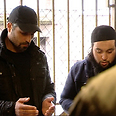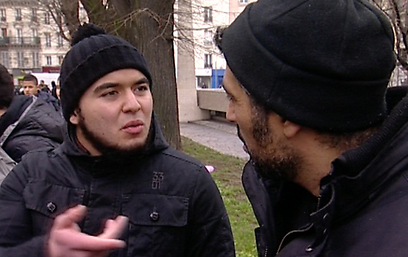
Doco spotlights Europe's problems
Op-ed: Israeli TV series will be there to prove how European leadership ignored threats posed by Muslim extremists
The series’ viewers had by then seen no-go areas in Muslim ghettos in countries such as France, the UK and Sweden. It had given attention to violence and other crimes among Muslim immigrants into Europe, expressions of justification of Muslim terror, intimidation of dissenters, discrimination against and sometimes murder of Muslim women, as well as religious fanaticism. It also showed that the third and fourth generation of immigrants into Europe was often less integrated than the first one. The fourth part shown since was devoted to the widespread anti-Semitism of radical Muslims in Europe.
I mentioned to the interviewer that it was telling that he considered this a news item. Many similar documentaries should have been made long ago by European broadcasters. The problems with segments of the Muslim population shown in the Israeli documentary are European ones. Israeli TV should have had a choice of which European films on this subject to buy. I wondered whether it was not shameful for Europe that an Israeli reporter, Zvi Yehezkeli, had to pose as a Palestinian to make this material accessible.
The interviewer then asked me why I thought that European stations had not made many similar films. One answer is that it is not politically correct to point out that there are a substantial number of people from a specific religious or ethnic group who cause disproportionate problems in European democratic societies. Political correctness in this case is thus a synonym for obfuscating and distorting the truth.

Scene from film (Photo: Courtesy of Channel 10)
Other reasons include the desire to ignore major problems, as well as fear of aggressive elements in the Muslim community. That comes under the heading of European cowardice. Nor does the much vaunted European freedom of press mean that all major problematic issues will be tackled as needed. All these reasons have another facet: European decadence.
To be fair, some documentaries in European countries on problems with a few Muslim populations have been made. Their scope however, is far narrower than the Israeli series. For instance, in 2007 British Channel Four broadcast a program titled 'Undercover Mosque.' The producers summarized it as "an extensive investigation into a number of British mosques to reveal how a message of hatred and segregation is being spread throughout the UK."
The West Midlands police accused the filmmakers that their documentary distorted the truth and that it "had selectively edited quotes from preachers in mosques around the country to make them appear more extreme." After these police claims were found false, Channel 4 and the program-makers were paid about 100,000 pounds sterling.
A Panorama TV program aired by the BBC in November 2010 dealt with curriculums in Saudi-run Muslim schools in Britain. It found that these schools used textbooks from Saudi Arabia that teach children from age six and up that Jews are descendants of monkeys and pigs. After-school programs catered to about 5,000 children from the ages of six to 18 and were overseen by the cultural bureau of the Saudi embassy in London.
The Panorama program also noted that one textbook stated that "Jews are cursed by God" and asked children to list Jews’ negative qualities. Teenagers who follow the Saudi national curriculum are being taught that Zionists aim to take over the world for Jews and that the fabricated text of The Protocols of the Elders of Zion is genuine.
The Israeli documentary only showed the tip of the iceberg. The problems Muslim immigration has brought to Europe are much larger. Immigrants are responsible for part of these. Others are the result of the authorities’ failures in the receiving countries.
Much more could be learned if for instance, another documentary were to be made focusing on the attitudes of mainstream, rather than extremist, Muslims toward Western society and in particular Jews. One does not have to be an al-Qaeda admirer or a regular mosque visitor to be a Holocaust denier, think that Jews are inferior people, or desire Israel to be wiped off the map.
There are only a few studies on anti-Semitism in European countries, but they are telling. A study on the attitudes of Turks in Germany found that 18% consider Jews inferior people. Another one by Mark Elchardus found anti-Semitism in Flemish-speaking elementary schools in Brussels concluded that about 50% of Muslim pupils could be considered anti-Semites, as opposed to 10% of the others.
European TV stations may or may not want to buy the Israeli documentary. Once problems increase however, this film will be there to prove how European leadership intentionally looked away from huge challenges which were already manifest in their countries for a long time.
Manfred Gerstenfeld is a member of the board of the Jerusalem Center for Public Affairs, of which he has been chairman for 12 years










